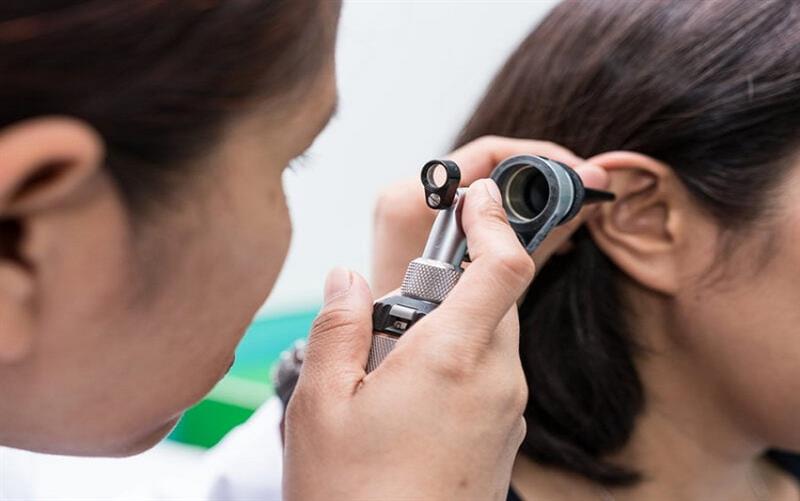
"Hearing Hurdles" aims to empower individuals with the knowledge and resources needed to proactively manage hearing issues. By understanding the intricacies of hearing health, recognizing symptoms early on, and adopting effective strategies, you can overcome the hurdles associated with hearing loss and lead a fulfilling life. Remember, the key is taking action and seeking support when needed.
How Hearing Works
Explains the process of sound transmission from the external environment to the brain, emphasizing the role of the ear's components. This knowledge serves as a foundation for comprehending hearing loss causes. Hearing is a complex physiological process that involves the reception, transmission, and interpretation of sound signals by the auditory system. The process can be broken down into several key steps:
1. Sound Waves Reception:
- The journey begins when sound waves, which are variations in air pressure, reach the outer ear.
- The external part of the ear, known as the pinna, helps collect and funnel these sound waves towards the ear canal.
2. Ear Canal and Eardrum:
- The sound waves travel through the ear canal and eventually reach the eardrum (tympanic membrane).
- The eardrum vibrates in response to the incoming sound waves, amplifying them.
3. Middle Ear Mechanics:
- Behind the eardrum are three small bones called the ossicles: the malleus (hammer), incus (anvil), and stapes (stirrup).
Common Causes of Hearing Loss
Details various factors contributing to hearing impairment, such as age, exposure to loud noises, genetics, infections, and medical conditions. Awareness of these causes helps in recognizing risk factors. Hearing loss can be attributed to various factors, and understanding the common causes is essential for recognizing and addressing potential issues. Here are some prevalent reasons for hearing loss:
1. Age-related Hearing Loss (Presbycusis):
Gradual hearing decline is a natural part of aging, typically affecting individuals as they get older. It often involves a loss of sensitivity to high-frequency sounds.
2. Noise-induced Hearing Loss:
Prolonged exposure to loud noises, such as heavy machinery, music concerts, or firearms, can damage the delicate hair cells in the inner ear, leading to permanent hearing loss.
3. Genetic Factors:
Some individuals may inherit a predisposition to hearing loss. Genetic factors can contribute to various types of hearing impairment.
4. Infections and Diseases:
Ear infections, especially chronic ones, can cause damage to the ear structures and result in hearing loss. Diseases such as meningitis and mumps can also impact hearing.
5. Ototoxic Medications:
Certain medications, including some antibiotics, chemotherapy drugs, and non-steroidal anti-inflammatory drugs (NSAIDs), may have side effects that can harm the inner ear and lead to hearing loss.
6. Trauma or Injury:
Head injuries or trauma to the ear can damage the structures responsible for hearing, causing temporary or permanent hearing loss.
7. Wax Buildup:
Accumulation of earwax (cerumen) in the ear canal can obstruct sound waves and cause hearing difficulties. Regular cleaning is necessary to prevent this.
Types of Hearing Loss
1. Conductive vs. Sensorineural Hearing Loss
Differentiates between these two main types of hearing loss. Conductive issues involve problems with the ear canal or middle ear, while sensorineural issues relate to damage in the inner ear or auditory nerve.
Conductive Hearing Loss: Conductive hearing loss occurs when there is a disruption in the transmission of sound waves from the outer ear to the inner ear. The blockage or interference typically occurs in the ear canal, eardrum, or middle ear.
Causes:
- Ear Canal Blockage
- Eardrum Issues
- Ossicle Abnormalities
Sensorineural Hearing Loss: Sensorineural hearing loss results from damage to the inner ear (cochlea) or the auditory nerve. This type of hearing loss affects the ability of the ear to transmit signals to the brain for interpretation.
Causes:
- Age-Related Factors
- Noise Exposure
- Genetic Factors
- Certain Medications
2. Mixed Hearing Loss
Explains situations where both conductive and sensorineural hearing loss coexist. Mixed hearing loss is a type of hearing impairment that involves a combination of both conductive and sensorineural hearing loss. This means there are issues affecting both the outer/middle ear and the inner ear or auditory nerve.
Causes:
- Concurrent Conductive and Sensorineural Factors
- Infections or Trauma
- Age-Related and Environmental Factors
3. Temporary vs. Permanent Hearing Loss
Discusses hearing loss that may be reversible, such as that caused by infections or blockages, versus permanent loss, often associated with aging or prolonged exposure to loud sounds.
Temporary Hearing Loss: Temporary hearing loss refers to a situation where the hearing impairment is not permanent, and the individual's hearing ability can potentially be restored.
Causes:
- Ear Infections
- Accumulation of Fluid
- Blockages
- Certain Medications
Permanent Hearing Loss: Permanent hearing loss implies a long-term or irreversible impairment of the auditory system, where the ability to hear is not fully restored.
Causes:
- Age-Related Factors (Presbycusis)
- Noise Exposure
- Genetic Factors
- Inner Ear Disorders
4. Age-Related Hearing Loss
Age-related hearing loss, also known as presbycusis, is a gradual and natural decline in hearing that occurs as individuals age. It is one of the most common types of hearing impairment, affecting many people as they get older.
Causes:
- Degeneration of Cochlear Hair Cells
- sound, naturally degrade with age
Changes in the Inner Ear Structures
- Cumulative Noise Exposure
It's ideal to keep yourself as educated with your hearing aids and a new breakthrough in the technology. Ask your query via Book an Appointment today. For more information visit https://hearing.careinc.ca or you can call us today at (403)605-6300